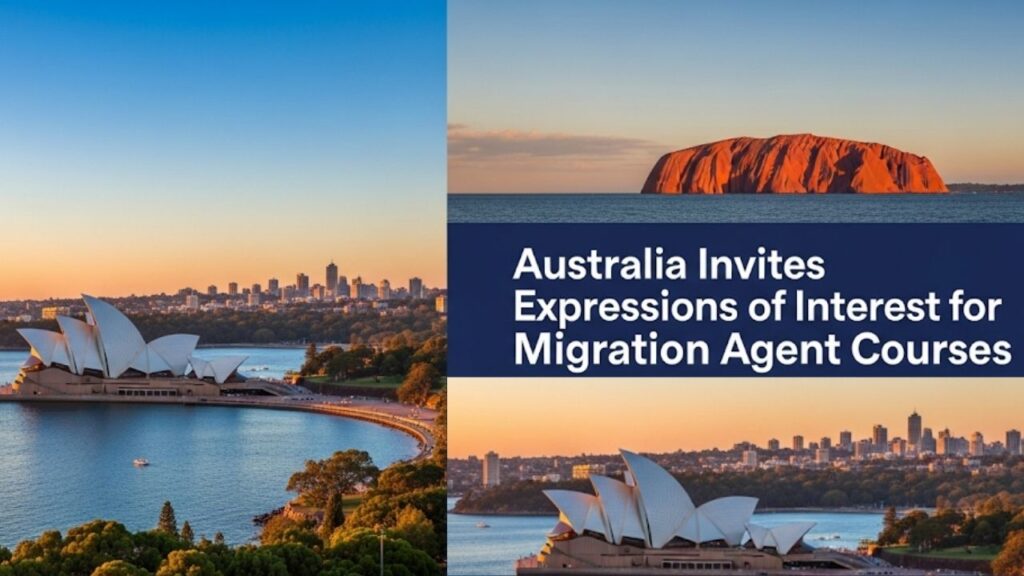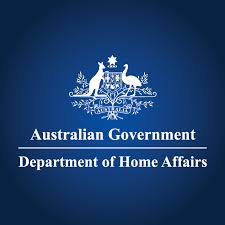Navigating the dynamic landscape of Australian migration can be both a challenge and an incredible opportunity. For those aspiring to become trusted guides in this journey, the role of a Registered Migration Agent (RMA) is paramount. This profession demands not only deep legal knowledge but also a commitment to ethical practice and continuous learning. As Australia streamlines its processes and updates its foundational frameworks, a significant development is on the horizon: the sunsetting of Migration (IMMI 18/003) Instrument 2018. This pivotal change is prompting Australia to invite Expressions of Interest (EOIs) for new migration agent courses, ensuring that future RMAs are equipped with the most current knowledge and skills.
This article delves into the implications of the IMMI 18/003 expiry, the significance of the EOI process, and how aspiring migration agents can successfully position themselves in this evolving environment. If you’re considering a career as an Australian migration agent, understanding these changes is crucial for a smooth and successful entry into the profession.

Understanding the Landscape: Why IMMI 18/003 Matters
The Migration (IMMI 18/003: Specified courses and exams for registration as a migration agent) Instrument 2018 has been a cornerstone for defining the educational pathways required to become a Registered Migration Agent in Australia. This legislative instrument outlines the specific courses and assessments that individuals must complete to satisfy the knowledge requirements set by the Office of the Migration Agents Registration Authority (OMARA). In essence, it tells you what you need to study and pass to be recognized as a qualified migration agent.
However, all legislative instruments under Australia’s sunsetting framework are designed to automatically repeal after a fixed period, typically five or ten years, unless they are remade. This ensures that laws remain relevant, effective, and “fit for purpose” in an ever-changing regulatory environment. IMMI 18/003 is due to sunset on April 1, 2026, marking a critical juncture for the migration agent profession.
The Department of Home Affairs is actively remaking this instrument. This isn’t just a bureaucratic formality; it’s an opportunity to update the requirements, align them with OMARA’s contemporary expectations, and ensure that new RMAs possess the most relevant knowledge and language skills demanded by the industry. In my experience advising students, one common hurdle is staying abreast of such legislative shifts, but grasping these changes early is a definite advantage.
The Purpose of the Remake
- Reflect updated requirements of OMARA: The regulatory body for migration agents, OMARA, continually assesses the standards needed to maintain integrity and professionalism within the industry. The new instrument will incorporate any revised benchmarks.
- Align with contemporary knowledge and language requirements: The complexities of migration law and policy evolve. The new courses will need to cover the latest legal frameworks, administrative practices, and ethical considerations. Furthermore, the emphasis on strong English language skills remains critical for effective communication with clients and the Department.

The Call for Expressions of Interest (EOIs)
To facilitate the remake of the legislative instrument, the Department of Home Affairs has issued a Request for Expressions of Interest (REOI) to higher education providers. This EOI process is an open invitation for universities and other accredited institutions to propose courses that meet the updated standards for the education of aspiring migration agents. All courses, even those currently listed under IMMI 18/003, must be reassessed and approved to be included in the new instrument.
This is a crucial step to ensure that when the new instrument comes into effect, there is a robust selection of accredited courses available for individuals pursuing a career as a Registered Migration Agent. The deadline for these submissions is August 4, 2025.
What This Means for Aspiring Migration Agents
For you, as a prospective migration agent, this EOI process signifies a commitment to maintaining high standards within the profession. It also means that the courses available to you in the near future will be thoroughly vetted and designed to prepare you for the current realities of migration law and practice.
While the specific details of the new courses are yet to be finalised and approved, understanding the current educational pathways offers valuable insight. Currently, aspiring RMAs typically need to complete a Graduate Diploma in Australian Migration Law and Practice and pass a Capstone Assessment.
Key Steps to Become a Registered Migration Agent
- Educational Qualification: Successfully complete a Graduate Diploma in Australian Migration Law and Practice from an OMARA-approved provider. Universities such as Western Sydney University, Victoria University, and the University of Technology Sydney are known for offering these programs (Western Sydney University offers a Graduate Diploma in Australian Migration Law; Victoria University offers a Graduate Diploma in Migration Law; the University of Technology Sydney offers a Graduate Diploma in Migration Law and Practice).
- Capstone Assessment: Pass the independent Capstone Assessment, which evaluates your knowledge and practical skills. Legal Training Australia Pty Ltd (LTA) is the current provider of this assessment. The structure of this assessment was updated in October 2023, consolidating two written assessments into one and extending the oral assessment, while also reducing the cost (Migration Alliance, 2023).
- English Language Proficiency: Demonstrate the required English language skills, typically an overall IELTS score of 7, with no less than 6.5 in each component, or equivalent in other accepted tests like TOEFL iBT or PTE Academic (OMARA, n.d.).
- Professional Indemnity Insurance: Obtain professional indemnity insurance of at least AUD250,000 (OMARA, n.d.).
- Character Requirements: Meet the strict character requirements set by OMARA.
- Registration: Apply for registration with OMARA within 12 months of passing the Capstone Assessment.

Navigating Your Journey: Actionable Advice
Becoming a Registered Migration Agent requires dedication and a strategic approach. Here’s how you can prepare and successfully navigate this process:
1. Stay Informed About Course Accreditation
While the current list of approved courses under IMMI 18/003 remains valid until April 1, 2026, keep a close watch on announcements from the Department of Home Affairs and OMARA regarding the new instrument and the approved courses. Universities will likely update their course offerings to align with the new requirements.
“I’ve seen many successful applicants focus on thorough preparation for the Capstone Assessment, as it’s the ultimate test of their practical understanding.”
2. Choose the Right Educational Provider
Research universities and institutions that offer the Graduate Diploma in Australian Migration Law and Practice. Look for programs with:
- Accreditation: Ensure the program is, or is expected to be, approved by OMARA under the new legislative instrument.
- Experienced Faculty: Learning from seasoned migration lawyers and agents can provide invaluable practical insights.
- Comprehensive Curriculum: The course should cover all facets of migration law, including visa subclasses, compliance, merits review, and the Migration Act 1958 and Migration Regulations 1994.
- Practical Focus: Programs that incorporate practical training, case studies, and workshops will better prepare you for real-world scenarios.
3. Master the Capstone Assessment
The Capstone Assessment is a critical hurdle. It’s designed to ensure you meet the high standards expected of RMAs. Familiarise yourself with its structure and content. Resources from Legal Training Australia (the provider of the Capstone Assessment) and OMARA will be invaluable. Many students find that thorough revision of migration legislation, policy, and ethical guidelines, combined with practice scenarios, is key to success.
4. Hone Your English Language Skills
Strong communication skills are non-negotiable for a migration agent. If English is not your first language, dedicate time to improving your proficiency to meet the required IELTS (or equivalent) scores. This will benefit not only your Capstone Assessment but also your interactions with diverse clients.
5. Network and Seek Mentorship
Connect with current Registered Migration Agents. The Migration Institute of Australia (MIA) offers student subscription services and events that can provide valuable networking opportunities and support as you embark on your studies (Migration Institute of Australia, n.d.). Mentorship can offer practical advice and insights that go beyond textbooks.
6. Understand the Ethical Framework
The Code of Conduct for registered migration agents sets out the rules for professional and ethical conduct (OMARA, n.d.). Familiarise yourself with this code early in your journey. Integrity and professionalism are at the core of being a trusted migration agent.
Stay Updated with Official Sources
For the most accurate and up-to-date information, regularly check the official websites of:
- Department of Home Affairs: For announcements regarding legislative instruments and policy changes.
- Office of the Migration Agents Registration Authority (OMARA): For registration requirements, the Code of Conduct, and news relevant to RMAs.
- Legal Training Australia: For details on the Capstone Assessment.
One common mistake I’ve observed is relying solely on third-party information; always cross-reference with official government sources.
One sentence explaining social media embed relevance: This tweet from the Department of Home Affairs could provide official updates on the EOI process or legislative changes.
Navigating Europe’s Growing Job Shortages in 2025: Your Guide to Opportunity
Navigating the Landmark UK Skilled Worker Visa Changes for July 2025: A Practical Guide
FAQ
Q1: What is the significance of the IMMI 18/003 expiry?
The IMMI 18/003 Instrument specifies the courses and exams required to register as a migration agent. Its expiry on April 1, 2026, means the Department of Home Affairs is remaking it to update educational and language requirements, ensuring future migration agents are equipped with contemporary knowledge and skills.
Q2: What is an Expression of Interest (EOI) in this context?
In this context, an EOI is a formal invitation from the Department of Home Affairs to higher education providers to propose new or reassess existing courses for inclusion in the updated legislative instrument. It’s how the government gathers proposals for approved migration agent training programs.
Q3: What qualifications are generally required to become a Registered Migration Agent (RMA)?
Generally, you need to complete a Graduate Diploma in Australian Migration Law and Practice from an OMARA-approved provider, pass the independent Capstone Assessment, demonstrate English language proficiency (e.g., IELTS 7.0 overall), hold professional indemnity insurance, and meet character requirements.
Q4: Are there any upcoming changes to the Capstone Assessment?
Yes, changes to the Capstone Assessment commenced in October 2023. These include consolidating the two written assessments into one, extending the oral assessment, and reducing the overall cost.
Q5: Where can I find the most accurate information about these changes?
For the most accurate and up-to-date information, always refer to the official websites of the Department of Home Affairs, the Office of the Migration Agents Registration Authority (OMARA), and Legal Training Australia.










